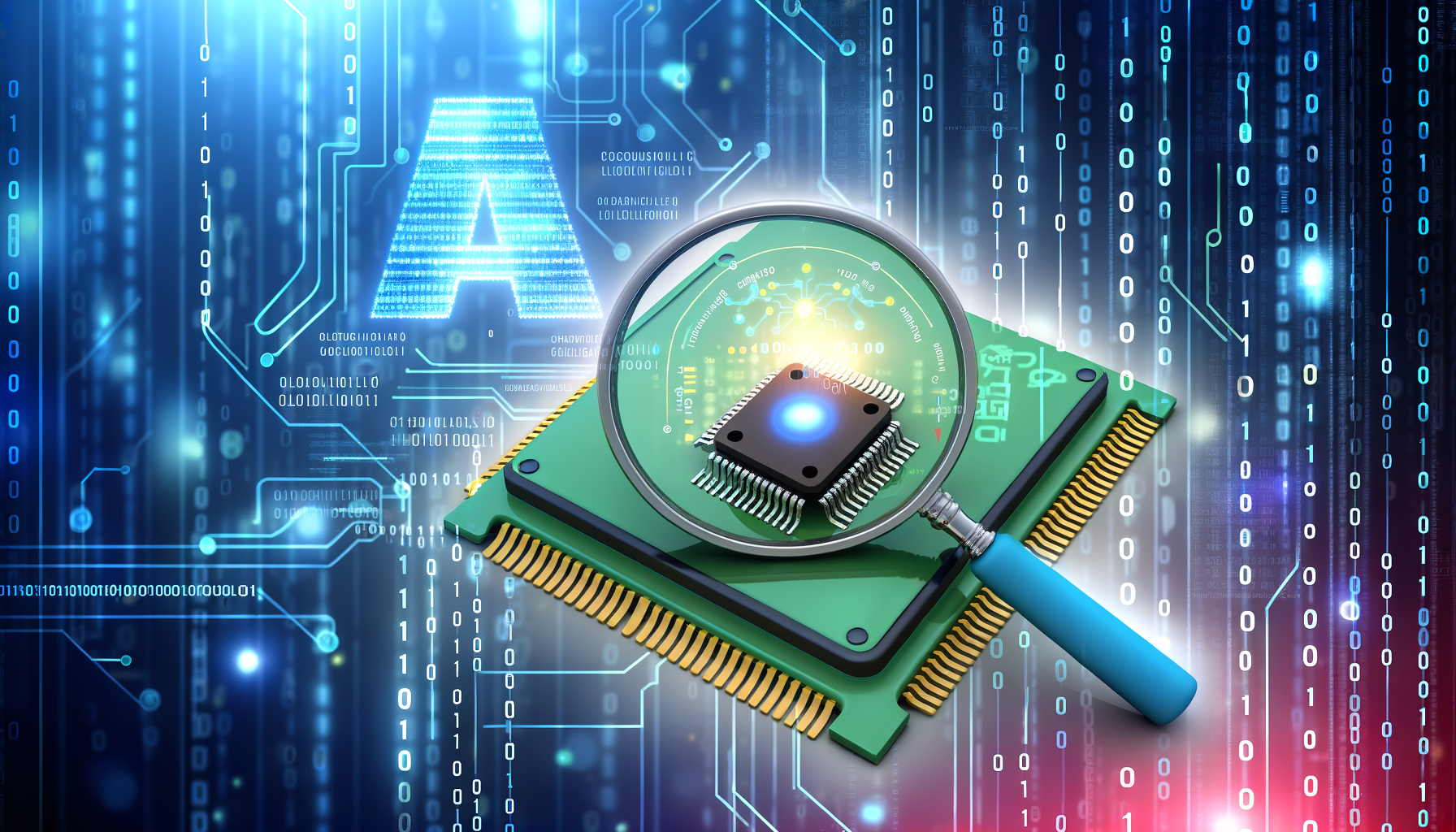Decoding the Expansion of AI Microcontrollers
 Shreya Sulkunde
Shreya Sulkunde
The rise of artificial intelligence (AI) microcontrollers, often known as AI MCUs, represents a watershed moment in technology integration within our increasingly digital world. Whether it's the seamless operation of smart homes, the intricacies of precision-driven manufacturing processes, or the intuitive interfaces within healthcare devices, AI MCUs are pivotal in driving innovation, efficiency, and intelligence.
Understanding the AI MCU Landscape
At the heart of this technological evolution is the AI microcontroller—a compact computing device with the extraordinary ability to process complex AI algorithms directly. Unlike traditional microprocessors, which may be power-intensive and require robust systems, AI MCUs are designed to function efficiently in constrained environments. Their abilities facilitate edge computing, enabling real-time data processing and decision-making at the device level, rather than relying on cloud-computing power.
This advance in processing capability is why AI MCUs are making significant waves across sectors worldwide. Let's delve into the key factors propelling the expansion of the AI microcontroller market.
The Rise of Edge Computing
One of the most prominent drivers of the AI microcontroller market is the dawn of edge computing. Rather than sending data to centralized servers for processing, which often introduces latency and potential privacy concerns, AI MCUs enable computations to happen at the "edge" of systems themselves. This method:
Reduces Latency: Data processed at the source ensures instantaneous feedback and responsiveness. This factor is crucial in sectors like autonomous vehicles and robotics.
Optimizes Bandwidth: By processing data locally, AI MCUs minimize the amount of information transmitted over the network, alleviating congestion and optimizing bandwidth.
Enhances Privacy and Security: Edge computing keeps sensitive data on the device, reducing cybersecurity risks associated with cloud-based processing.
Transformative Impacts Across Industries
1. Smart Homes and Consumer Electronics
In modern households, AI MCUs play essential roles in devices ranging from voice-activated assistants, security systems, and energy monitoring tools. These MCUs enable:
Intelligent Interaction: AI MCUs in smart home products help user interfaces learn from user preferences, facilitating targeted and intuitive controls.
Energy Efficiency: Real-time monitoring powered by AI MCUs adjusts home energy systems to ensure optimal consumption based on usage patterns.
2. **Healthcare
**In healthcare, AI MCUs are integrated into wearable devices and diagnostics tools. Their application supports:
Remote Monitoring: AI MCUs in wearable health monitors enable continuous tracking of vital signs, offering potential predictive insights into patient health.
On-Device Diagnosis: By executing AI algorithms within diagnostics equipment, practitioners can quickly assess patient data, reducing the time for accurate diagnosis.
3. **Industrial Automation and IoT
**Industrial IoT holds immense potential through AI microcontrollers:
Predictive Maintenance: AI MCUs discern operational patterns and identify potential equipment failures before they occur, slashing maintenance costs.
Precision Control: AI-driven microcontrollers provide real-time adjustments in manufacturing processes, ensuring product consistency and quality.
Overcoming Challenges
Despite their advantages, AI MCUs face several challenges:
Development Complexity: Programming AI microcontrollers requires specialized expertise, balancing powerful AI algorithms with energy-efficient designs.
Security Concerns: As AI MCUs proliferate, ensuring robust security frameworks to protect device-level and network-level data becomes critical.
Scalability: Achieving uniform performance across diverse applications and environments remains a budgeting consideration and operational challenge.
The Road Ahead
In the dynamic landscape of digital transformation, the potential of AI microcontrollers is immense. Their evolution and expanded capabilities will undoubtedly fuel further advancements. Industry leaders understand the need to continually innovate, optimize, and address the challenges posed by AI MCUs. As their applications grow across sectors, pertinent investments in research and development will ensure AI microcontrollers reach their full potential, catalyzing a new era of intelligent technologies.
Final Thoughts
AI MCUs are undeniably positioned at the forefront of technological advancement driving enhanced capabilities and fostering new opportunities across multiple sectors. Their efficiency, intelligence, and scalability will continually transform the digital world as we know it. Professionals and businesses must seek to harness these tools to stay competitive, informed, and innovative for the years to come.
Explore Comprehensive Market Analysis of AI MCUs Market
Source - @360iResearch
Subscribe to my newsletter
Read articles from Shreya Sulkunde directly inside your inbox. Subscribe to the newsletter, and don't miss out.
Written by
